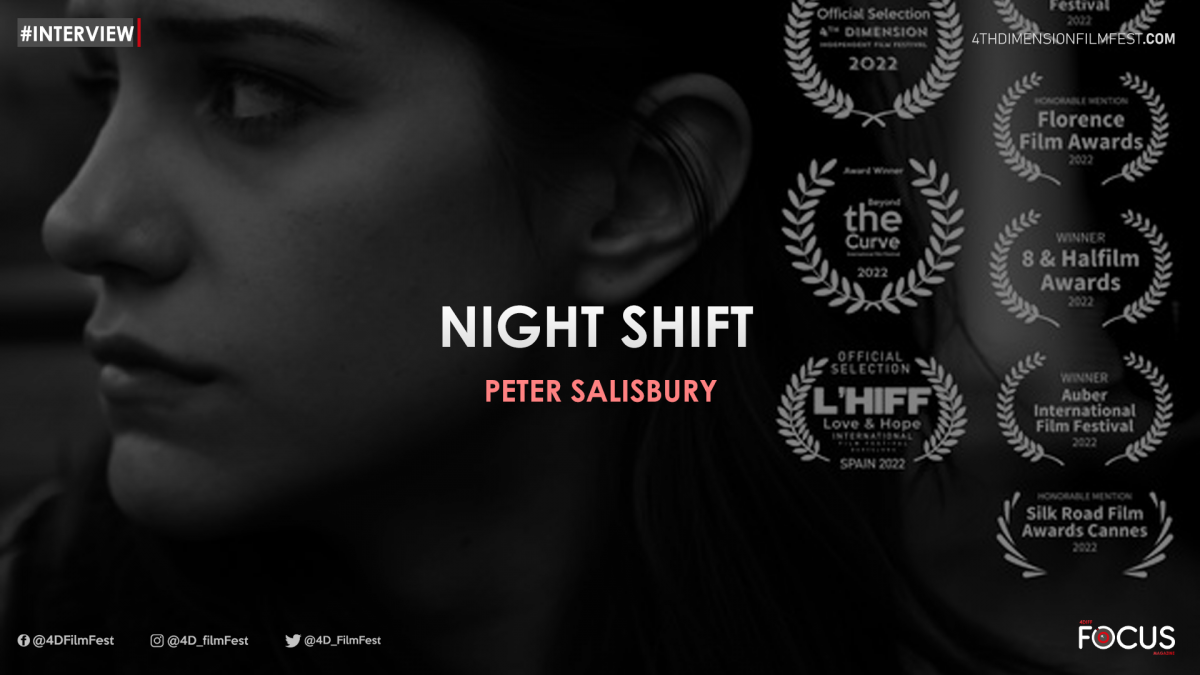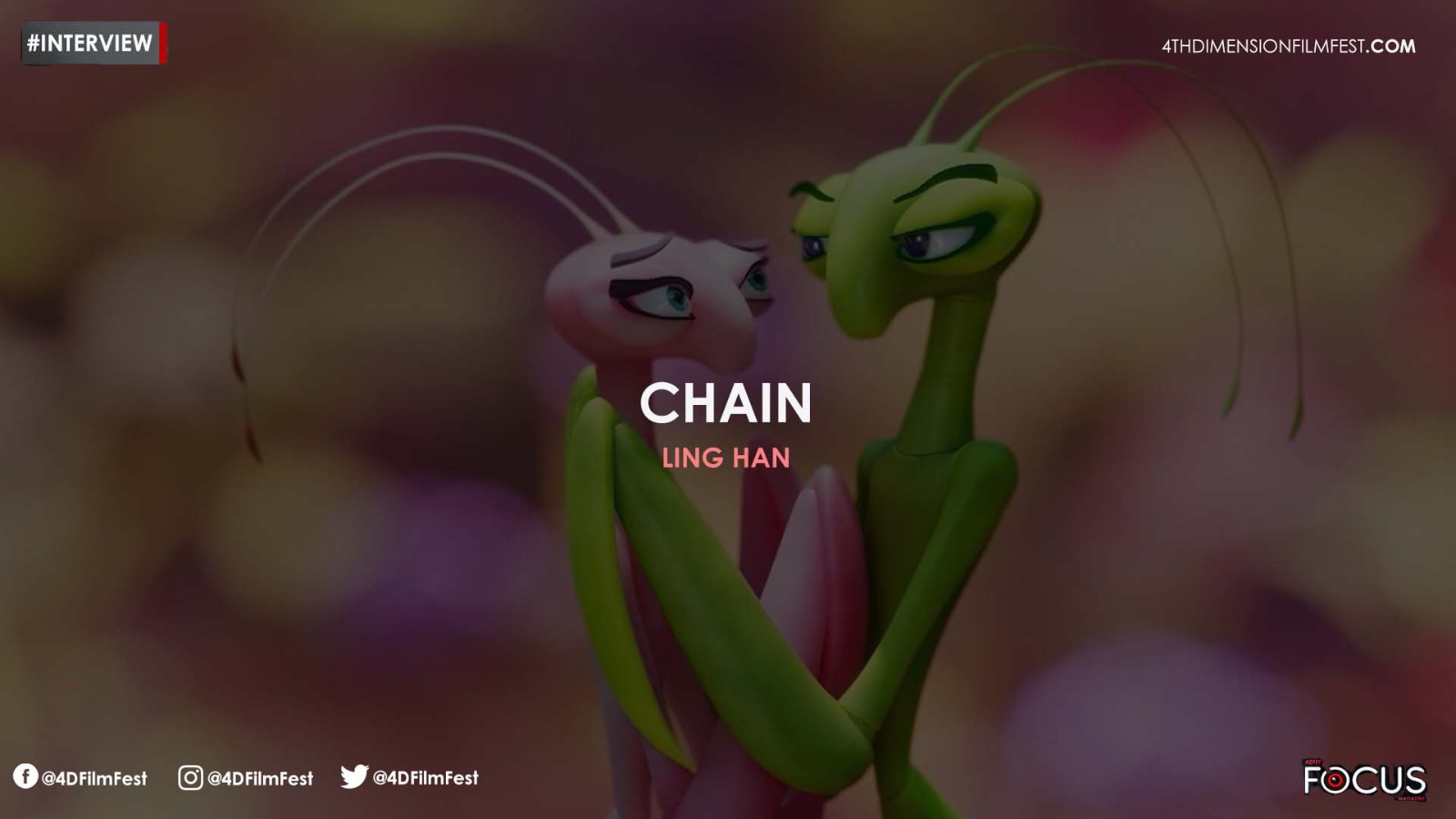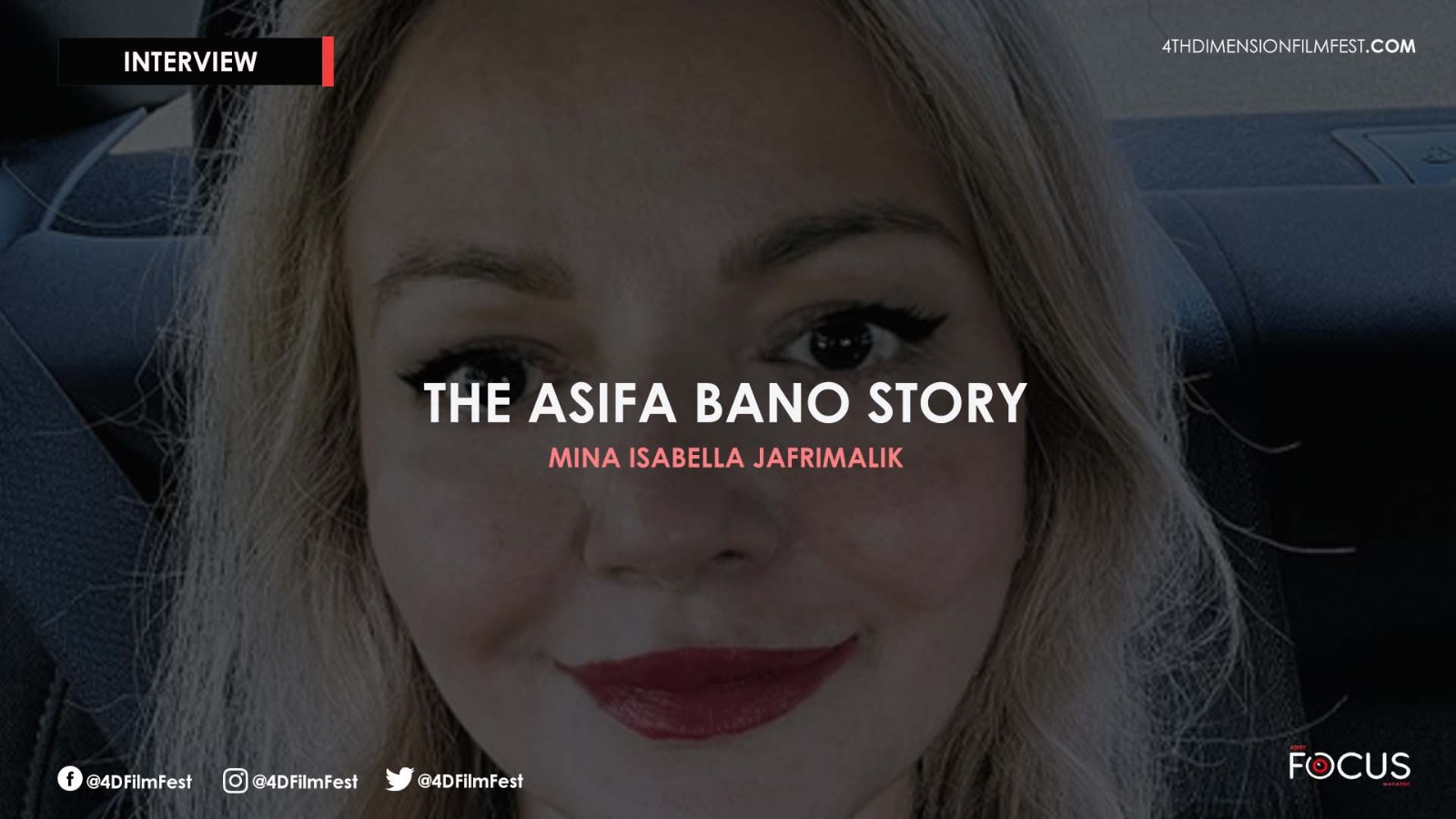Hi Peter, please talk to us about the difficulties of writing a short story. Is there a certain uncertainty evidently lurking around oneself?
I think there is always some uncertainty lurking somewhere in the background when I start working on a new screen idea. I always feel like I’m stepping into the unknown. Writing a short screenplay isn’t easy. It might seem straightforward but fitting a complete story into ten to twenty minutes of screen time is challenging. A short film must be clear, concise, and based on a very simple premise. This means finding the main character who has a very specific goal and being economical with secondary characters and backstory. You have to make the story simple, yet profound. So there’s no room for any waste. Short film scripts definitely have their own unique set of challenges that features don’t.
I would like to know what makes Lanya doubly removed from the society she is barely considered to be a part of? Her Identity, her gender, her job?
I think it’s a mix of all three. Her identity, her gender, and her job all contribute to her sense of isolation. Lanya is an immigrant, and as a refugee, she’s had to leave her country and make a new life for herself in another part of the world. This can be a very isolating experience. It takes time to settle into a new community, wherever you are from. And I think for someone like Lanya, who has lost everything and had to start over again in a strange country, it is doubly difficult.
How would you describe the bond between Lanya and Roisin? Was the intensity of their bond spurred by the fact that both were extremely alone in their lives?
When Lanya and Roisin first meet they are strangers. They come from different cultures, have different life experiences, different views of the world and different ideas of what they want out of life. Yet the one thing they have in common is that at that moment in time they are both vulnerable and alone in the city. It’s a chance encounter. But I think their bond develops as a result of compassion and a genuine curiosity in each other. Roisin is the only person Lanya encounters that night who isn’t antagonistic towards her. And, like most Irish people, Roisin is prepared to go out of her way to help a stranger. Lanya is equally prepared to help a stranger, although in a very different and startling way. I think, as with most friendships, their bond is the result of mutual respect and the simple fact that they click as people. They also have a great adventure together, which helps. So when the film ends, we are really leaving them at the start of their friendship.
The way you have written the scenes, they indicate Lanya’s movement from one place to another. Was it done to indicate how little autonomy there is in Lanya?
Lanya’s movement through the city is quite random. The moment she wakes up on the wrong side of the city, she finds herself in another world. She has no idea where she is and or how she’s going to get home. I did this on purpose because I wanted to give the story a slightly eerie, dreamlike feel in which Lanya is very much an outsider in a strange world. She simply wants to get from A to B but doesn’t know where B is. As you say, she has very little autonomy, and I think that’s right. Until the end, that is, when she is forced into taking action to save Roisin from assault. Up to that point in the story, she is like a boat that has broken its mooring, drifting with the current.
Do Roisin and Lanya act as foils to each other? Evidently, they make each other aware of things they weren’t aware of or never cared about.
Oh yes, definitely. Characters are the lifeblood of every film, so it’s vital that you establish the right dynamic between them. In the case of Lanya and Roisin, I knew very early in the writing process that I needed to set them up as foils to each other. They both needed to learn something from each other in order to learn something about themselves. Particularly so in the character of Lanya, who is the main protagonist of the story. She needs to undergo some sort of transformation, however small, in the course of her emotional and physical journey within the narrative. I felt that setting them up as each other’s foil would help to achieve this.

The characters around Lanya and Roisin are mostly loud. Do they create a deafening silence by speaking too much and too loudly as they attempt to snatch their voices ? Do they finally manage to get the better of the cacophony as indicated by Lanya towards the end of the story?
That’s very interesting. There is a ‘deafening silence’ permeating the narrative, now you come to mention it. It isn’t something I was thinking about as I was writing the story. Though I was thinking about the physical silence of the eerily empty streets and the different ways in which people engage with that silence. Voice performs an important function in establishing the dramatic tone of the film. I think the voices gradually build up to a cacophony towards the end of the film, and Lanya’s only option is to meet that cacophony head-on in order to defeat it and get the better of it. Cool question!
The occurrences appear scattered. The meeting of Lanya and Roisin is also a chance encounter, the heated exchange in the club as well. Can you tell us something about the events and the way they were placed within the narrative?
As I mentioned earlier, Lanya’s movement through the city is quite random. Chance meetings and events play an important role in the story. They help enhance Lanya’s predicament and structure her physical journey through the narrative. In terms of where these events were placed within the narrative, I sequenced them in such a way that they would build tension incrementally,
from the mundane event with the cops removing a drunk on the metro platform at the start of the film to the violent encounter with the gang of youths at the end. All the events were placed within the narrative with a specific dramatic function in mind.
You have dexterously juxtaposed sound and silence in the script. For example when Lanya looks at herself in the mirror she is immediately interrupted by her supervisor. A number of similar occurrences take place in the story. What role must sound play in the movie? Would you prefer a sombre and mellow tune, something different or would you be happy to let the voices balance the silence in the scenes?
The juxtaposition of sound and silence is fundamental to screen storytelling. It’s something I particularly like playing with, as you can really get inside an audience’s head and help feed their imagination through their ears. Particularly through silence, because nobody knows what’s coming next. When it comes to the role of sound within the movie, I would definitely let the voices balance the silence in the scenes. I would have very little non-diegetic sound if any. Music over the end credits, and that’s it.
Talk us through the process of writing the story. What do you think the process is like generally? Is it both tedious and rewarding?
I never find writing tedious. It’s always a rewarding process. I see the screenplay as a creative artifact in its own right. So for me writing is a journey of discovery. I always start a new project by gathering ideas. At first, I’m gleaning thoughts, images, ideas, dialogue, characters, locations, and emotions. I find I am often inspired by particular places. I use images and emotions to ‘meditate’ my way into a screen idea. Once I have found an idea with which I feel fully invested, I write a treatment for the story. As well as being a practical and necessary step in the development process, this allows me to get an overview of the script before breaking it down into scenes. It is also a great way of testing out the screen idea on other people. I then write a rough draft. Once I have that initial draft for the screenplay, I then go through a rigorous five-stage process of revision, comprising structural, character, scene and dialogue rewrites and then a final polish. Six drafts in all.
Why do you think stories like Night Shift must be told? Why do you think it is time we knew the Lanyas and Roisins around us?
Apart from the fact that there are people and cultures who are often underrepresented, misrepresented or invisible in the film, the Lanyas and Roisins around us, wherever they might be in the world, have some pretty fantastic stories to tell.





